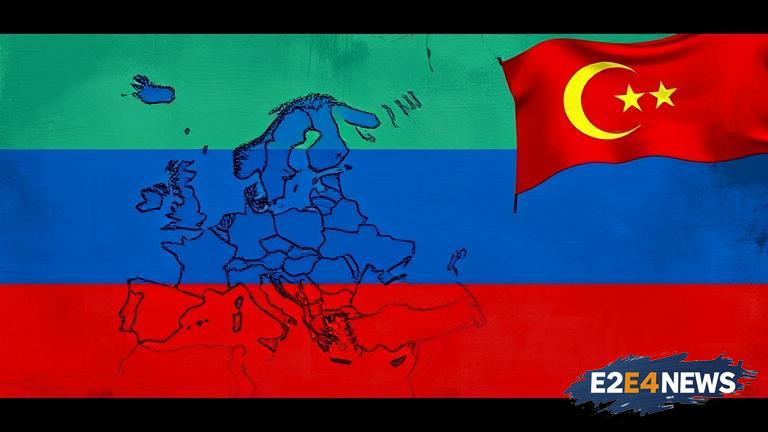The European Union has been accused of going soft on Azerbaijan, a country with a questionable human rights record and an authoritarian government. Critics argue that the EU’s desire to secure energy deals and maintain good relations with the oil-rich nation has led to a lack of scrutiny and accountability. Azerbaijan, located in the South Caucasus region, has been ruled by the Aliyev family since 1993, with President Ilham Aliyev currently at the helm. The country has a history of suppressing dissent and opposition, with many activists and journalists facing arrest and persecution. Despite this, European leaders have been criticized for their warm relations with the Aliyev regime, with some even attending a lavish inauguration ceremony for the president’s latest term in office. The EU has also been accused of turning a blind eye to Azerbaijan’s human rights abuses in order to secure access to the country’s vast oil and gas reserves. This has led to accusations of hypocrisy, with many arguing that the EU is prioritizing its own economic interests over its values of democracy and human rights. The situation has been further complicated by Azerbaijan’s strategic location, with the country serving as a key transit point for energy exports from the Caspian region to Europe. As a result, European leaders have been keen to maintain good relations with the Aliyev regime, despite its questionable human rights record. However, this approach has been criticized by many, who argue that it only serves to embolden the regime and undermine efforts to promote democracy and human rights in the region. The EU has also been accused of failing to adequately support civil society groups and opposition activists in Azerbaijan, who face significant challenges and risks in their efforts to promote democracy and human rights. In recent years, the Azerbaijani government has stepped up its crackdown on dissent, with many activists and journalists facing arrest and persecution. The EU’s response to these developments has been criticized as inadequate, with many arguing that the bloc should be taking a stronger stance against the Aliyev regime’s human rights abuses. Despite these criticisms, European leaders continue to engage with the Azerbaijani government, with many arguing that dialogue and cooperation are the best ways to promote positive change in the country. However, others argue that this approach only serves to legitimize the regime and undermine efforts to promote democracy and human rights. The situation in Azerbaijan is complex and multifaceted, with many different factors at play. However, one thing is clear: the EU’s approach to the country has been widely criticized, and many are calling for a stronger stance against the Aliyev regime’s human rights abuses. The EU’s failure to adequately address these issues has significant implications, not only for the people of Azerbaijan but also for the wider region and the EU’s own values and credibility. As the situation in Azerbaijan continues to deteriorate, it remains to be seen how European leaders will respond, and whether they will take a stronger stance against the Aliyev regime’s human rights abuses.
